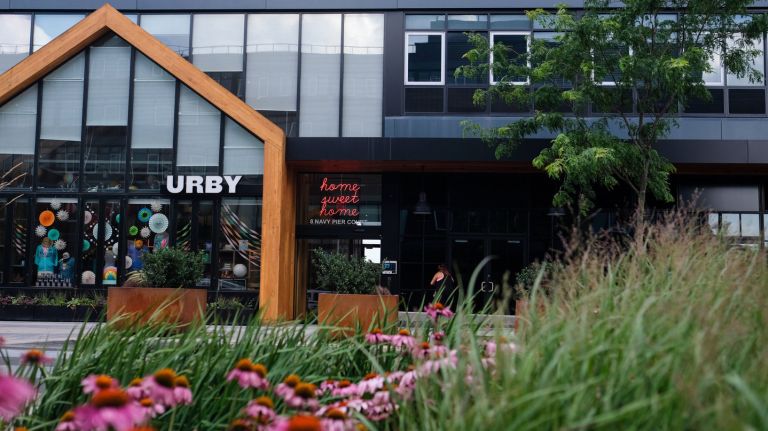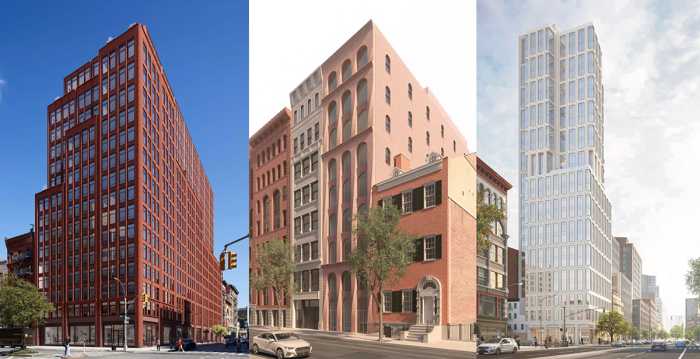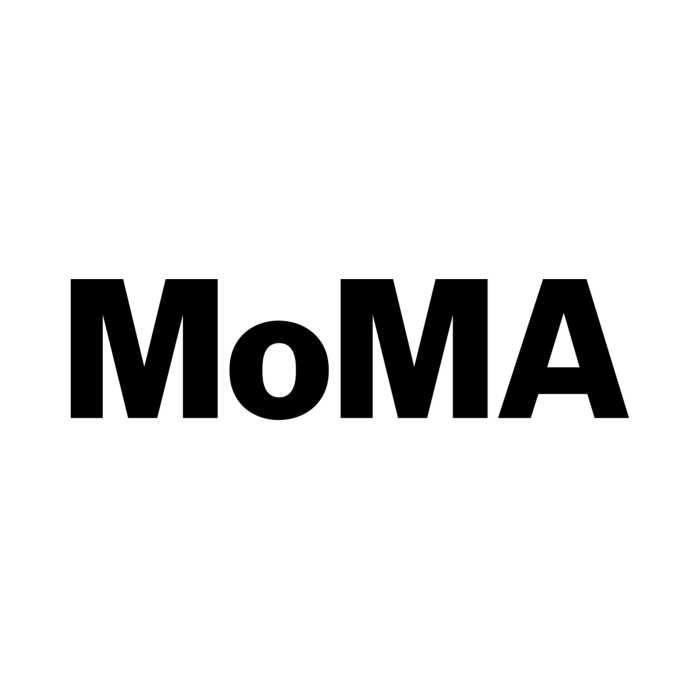
Urby, a Staten Island apartment development, allegedly responded to online complaints about “ghetto” residents living in its affordable units by creating a list of undesirable tenants — all of whom were African-American — and trying to force them out with frivolous housing court cases, according to a new lawsuit.
Three current and former Urby residents on Wednesday filed a federal complaint against the partially complete North Shore development, which has at least 500 units.
The trio accused Urby of violating fair housing and human rights laws while benefiting from tax perks, including the federal Low Income Housing Tax Credit, which requires recipients to reserve at least 20 percent of units for low-income residents and to annually certify that there have been no substantiated instances of discrimination, the complaint said.
“Urby benefited from millions of dollars in incentives from New York City to offer affordable housing to low-income tenants of all races in Staten Island, on an equal footing with the higher income tenants and free from harassment and discrimination,” Rachel Granfield, senior staff attorney at the Staten Island Legal Services group representing the plaintiffs, said in a statement. “Urby’s racial targeting of its low-income tenants is a gross breach of its legal and moral obligations as a publicly subsidized affordable housing complex.”
An Urby spokesperson said in a statement that the Stapleton residence was “an exemplary model of New York City’s commitment of providing new affordable housing.”
“We treat all of our tenants equally, in full compliance with all city, state and federal fair housing and anti-discrimination laws,” the statement said. “We are proud of the harmonious and diverse community we have created in Staten Island, but it is our responsibility to enforce all of our tenants’ lease obligations for the benefit of the entire community. The lawsuit filed yesterday is completely baseless and utterly without merit.”
Residents started posting comments on social media about their neighbors in affordable units in spring 2017, the complaint said.
One Yelp review read, “Ghetto is ghetto, no matter how much you make . . . and this place has stocked itself with GHETTO,” according to the complaint.
Another comment, on Google, said, “It looks nice on the tour but once you live there, you notice it is overrun with affordable housing tenants who are loud, ghetto and ruin your quality of life,” the complaint said.
Urby, which had been offering to waive a month or two of rent as several units sat vacant, responded by “initiating an aggressive campaign targeting those individuals — low-income black tenants — who are too frequently stereotyped as ‘ghetto,’ ” the complaint said.
Resident Lynchell Addison contacted management after a security guard told her a management consultant had allegedly compiled a list of tenants viewed as undesirable — all African-Americans — who guards were told to watch closely, according to the complaint.
The building then allegedly issued a “notice to cure” in September accusing Addison of violating the terms of her lease by being a nuisance and safety hazard. But the complaint said all of the allegations in the notice related to Addison’s complaints of racism.
Urby took Addison to housing court, but its court documents contained inaccurate allegations about the rental payment history for her apartment, the complaint said.
Addison opted to stay in Urby after one of its representatives wrote in an email, “We understand if you feel it is best to vacate and will waive any fees to allow you to do so at this time,” the complaint said.
But two of Addison’s neighbors did leave — and wound up homeless, the complaint said.
Tamareya Obie received a “notice to cure” in late 2017 or early 2018 claiming she had smoked cigarettes in her apartment, the complaint said. Obie, who does not smoke, believed the issue stemmed from a neighbor, who regularly smoked marijuana and left her door open, the complaint said.
When Obie was the subject of another complaint about smoking, she invited an Urby employee to come inside her apartment and verify that there was no odor, but according to the complaint, the employee refused to do so.
Obie found herself in housing court in April and, unaware of her options, agreed to move within two weeks while speaking to Urby’s lawyer in the court lobby, the complaint said.
She has since been staying with friends because, according to the complaint, she has not been able to find a landlord willing to accept the housing voucher the city issued her.
Jonathan Jones, who is a victim of domestic violence, received a “notice to cure” last summer that referenced an incident where police needed to escort Jones’ significant other from Jones’ apartment, according to the complaint.
City law prohibits landlords from discriminating against New Yorkers because they have been the victim of domestic violence. But a second “notice of termination” said the behavior in the first notice had not changed, according to the complaint.
As Jones watched some of his neighbors take buyouts or fight evictions, he agreed to surrender his $867-a-month apartment in October in exchange for $9,687, the complaint said.
He spent nearly four months in a homeless shelter before finding an apartment in the Bronx, according to the complaint.






































